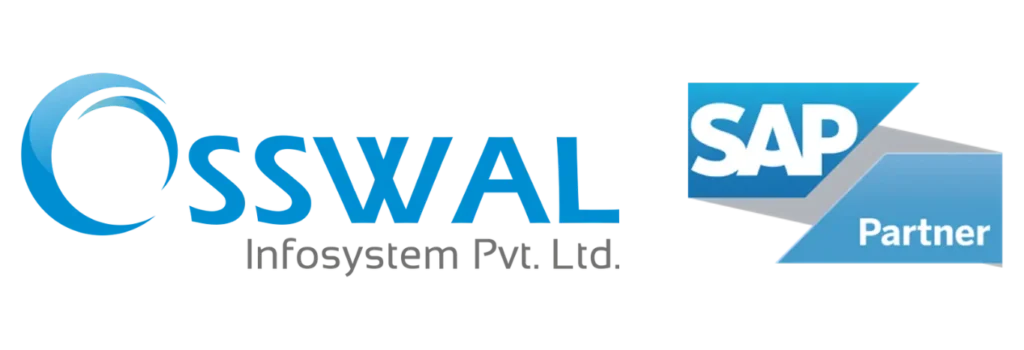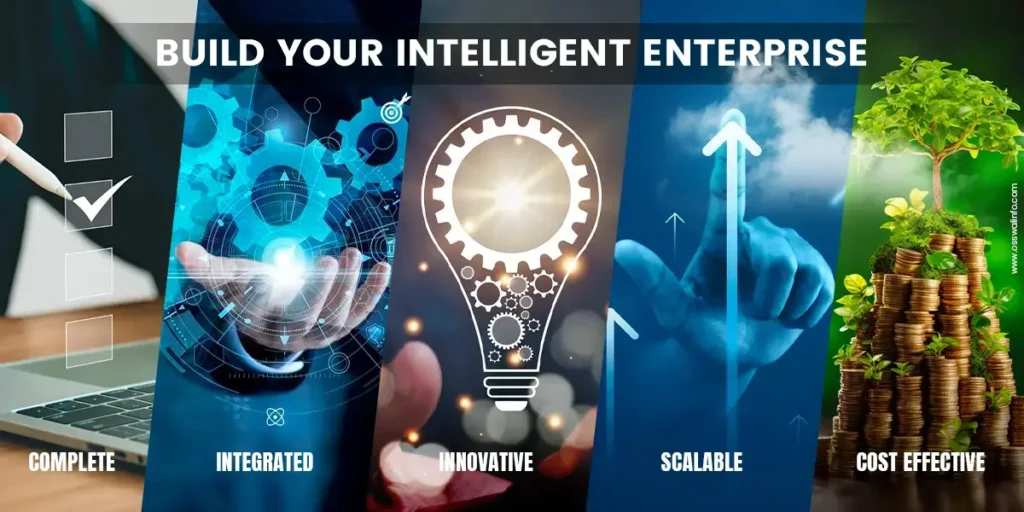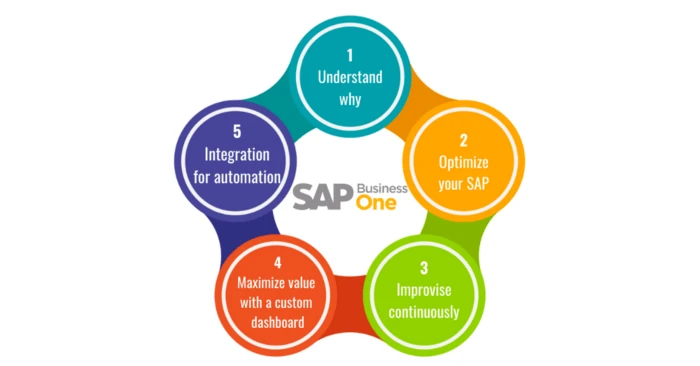As we look ahead to 2024, ERP systems are poised for exciting changes. Businesses will function in a whole new way by 2024, thanks to trends that will make them more data-driven, flexible, and sensitive to changes in the market. Whether it’s leveraging AI, harnessing the power of the cloud, or integrating IoT, ERP software is evolving to meet the needs of modern businesses.
Some general trends and predictions that were anticipated in the years leading up to 2024 are:
1. Cloud-Based ERP Dominance
The adoption of cloud-based ERP systems is expected to continue growing. Cloud solutions offer scalability, flexibility, and accessibility, making them attractive to businesses of all sizes.
2. Artificial Intelligence (AI) and Machine Learning (ML)
ERP systems are expected to integrate AI and ML to enhance automation, decision-making processes, and predictive analytics. This integration could help businesses make more informed decisions and streamline operations.
3. Enhanced Mobility
With the increasing reliance on mobile devices, ERP software were anticipated to offer improved mobile accessibility. This would enable users to access critical business data and functionalities on the go, promoting flexibility and responsiveness.
4. Blockchain Integration
Blockchain technology will likely be integrated into ERP systems to enhance transaction security and transparency. This could be particularly important for industries with complex supply chains or where traceability is crucial.
5. User-Friendly Interfaces
User-friendly interfaces improve the overall user experience. This would involve intuitive designs, simplified workflows, and personalized dashboards to enhance user adoption.
6. Real-Time Analytics
Businesses are increasingly valuing real-time analytics capabilities within ERP systems. This trend was driven by the need for immediate insights into business performance to facilitate quick decision-making.
7. Industry-Specific Solutions
ERP vendors are developing more industry-specific solutions tailored to the unique needs of different sectors. This approach allows businesses to implement ERP systems that align more closely with their industry requirements.
8. Cybersecurity Focus
As cyber threats continue to evolve, ERP software places a greater emphasis on cybersecurity features. This includes robust data encryption, multi-factor authentication, and proactive threat detection.
9. Evolving Regulatory Compliance Features
ERP systems are evolving to accommodate changing regulatory requirements. This is particularly important for businesses in heavily regulated healthcare, finance, and manufacturing industries.
10. Rise of Low-Code/No-Code Platforms
ERP systems embrace low-code or no-code platforms to empower business users and reduce reliance on IT departments. This enables users with limited coding skills to customize and configure the system to meet their precise needs.
By embracing these trends, organizations can stay ahead of the curve, and bring exponential growth to their ventures. SAP-integrated ERP solutions by Osswal Infosystem can help achieve reliability, accelerate ROI, and deliver lean operations.



